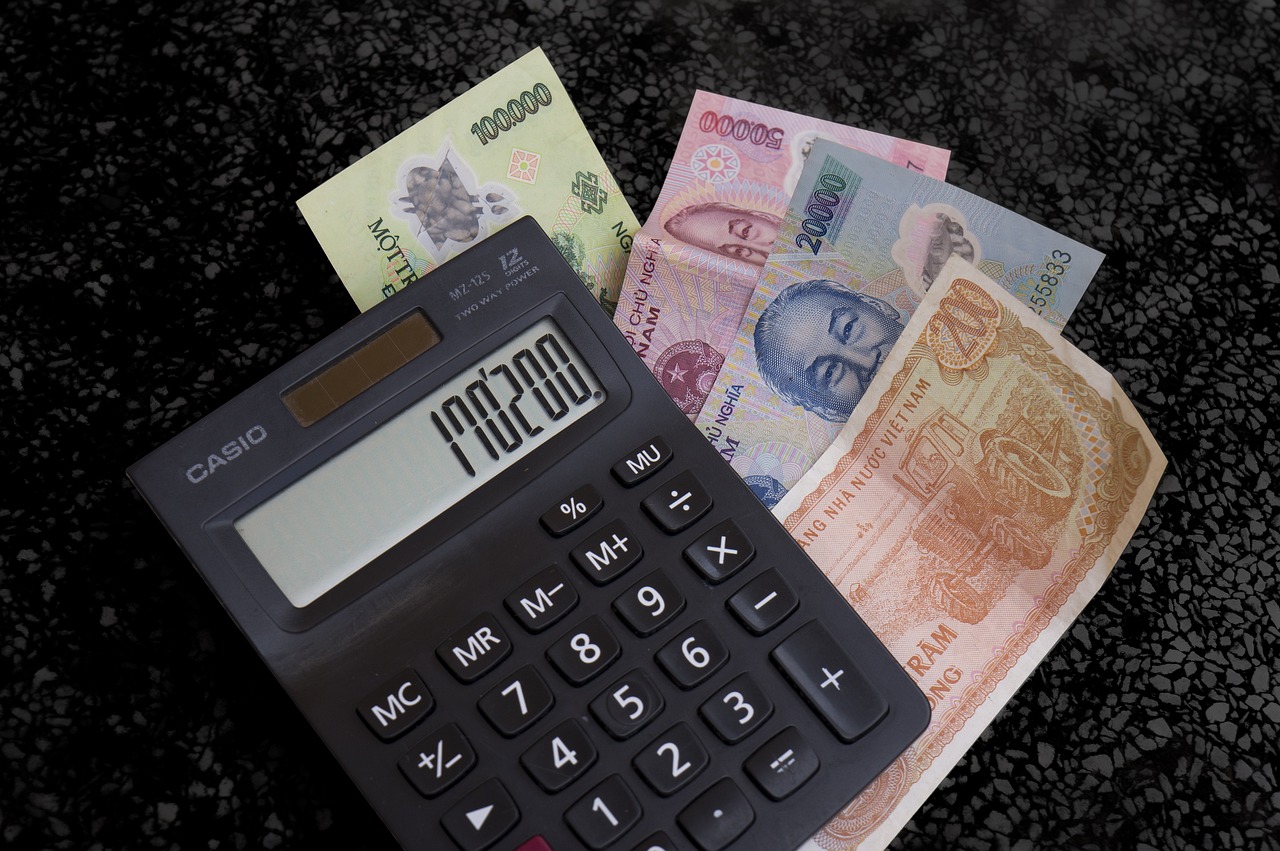Ensuring a Safe and Smooth Transaction: What to Know When Sending Money from Germany
GPT_Global - 2024-03-30 18:30:09.0 600
Are there any safety measures in place when sending money from Germany?
Sending money from Germany, whether it is for personal reasons or business transactions, is a common occurrence. With the advancement of technology, there are several ways to send money internationally. But with every transaction, safety measures should always be taken into consideration. Here are some safety measures in place when sending money from Germany.
1. Identification Verification
In order to send money from Germany, one must provide a valid form of identification. This is to prevent any fraudulent activities and ensure that the sender is the rightful owner of the money being transferred.
2. Secure Online Platforms
Most remittance businesses in Germany use secure online platforms for money transfers. These platforms have encryption and security measures in place to protect sensitive personal and financial information.
3. Transfer Limits
There are limits on the amount of money that can be transferred at once, depending on the remittance service provider. This helps prevent large sums of money being transferred without proper justification, which could be a red flag for fraudulent activity.
4. Monitoring for Suspicious Activity
Remittance businesses have systems in place to monitor for any suspicious activity, such as unusual or large transfers. This helps to detect and prevent money laundering and other illegal activities.
5. Refund Policies
In case of any errors or issues with the transfer, reputable remittance businesses have refund policies in place to protect their customers and provide a sense of security. Always make sure to choose a remittance provider with a clear and fair refund policy.
With these safety measures in place, sending money from Germany is a secure and convenient process. However, it is important to always be cautious and do proper research before choosing a remittance service provider to ensure the safety and security of your money.

How do I make sure the recipient receives the correct amount of money from Germany?
Sending money internationally can be a daunting task, especially when it comes to ensuring that the recipient receives the correct amount. If you are sending money from Germany, there are a few steps you can take to make sure that your loved ones or business partners receive the correct amount.
The first step is to choose a reliable remittance service provider. Look for companies that have a good reputation and offer competitive exchange rates. You can also check for reviews and ratings online to make an informed decision.
Next, make sure to provide the correct information of the recipient. This includes their full name, address, and bank account details. It is crucial to double-check this information to avoid any delays or errors in the transaction.
Another important aspect to consider is the currency exchange rate. Make sure to check the current exchange rate and choose a remittance provider that offers a good rate. This will help ensure that the recipient receives the maximum amount of money possible.
It is also essential to factor in any fees or charges that may be applicable to the transaction. These fees can vary depending on the remittance service provider, so make sure to compare different options before making a decision.
Lastly, once the transaction has been completed, make sure to follow up with the recipient to ensure they have received the correct amount. In case of any discrepancies, contact the remittance provider immediately to resolve the issue.
By following these steps, you can ensure that your loved ones or business partners receive the correct amount of money from Germany. It is always best to do some research and carefully choose a reliable and transparent remittance service provider to make the process as smooth as possible.
Can I send money from Germany using my credit card?
If you're in Germany and need to send money to someone in another country, using your credit card may seem like the quickest and most convenient option. However, there are some things you should know before deciding to do so.
Firstly, not all countries and banks accept credit card payments for remittance. It's important to check with the recipient's bank to make sure they can receive funds from your credit card. If they can't, your transfer will be rejected and you could end up losing money through fees or currency conversion rates.
Another thing to consider is the high fees associated with sending money through credit cards. Credit card companies charge a percentage of the transaction amount as a fee, which can add up to be quite costly, especially for larger transfers.
Additionally, using your credit card for remittance may impact your credit score. This is because sending money through credit cards is seen as a cash advance, which can negatively affect your credit score and limit your available credit.
Lastly, using your credit card for remittance may also come with a lower exchange rate compared to other options such as bank transfers or using a dedicated remittance service. This means the recipient may receive less money in their local currency than if you had used a different method.
In conclusion, while it may be tempting to use your credit card for remittance, it's important to consider the potential risks and fees involved. If possible, it's recommended to explore other options like bank transfers or dedicated remittance services to ensure a smoother and more cost-effective transaction.
What happens if there is an error when sending money from Germany?
When sending money from Germany to another country, there is a possibility that an error may occur during the transaction process. This can be due to various reasons, such as incorrect recipient details, technical issues, or delays in the banking system.
If an error does occur, it is important to address the issue as soon as possible. The first step would be to contact your remittance service provider and inform them of the error. They will be able to assist you in resolving the issue and ensure that your money is successfully transferred to the intended recipient.
If the error was caused by incorrect recipient details, it may be necessary to cancel the transaction and initiate a new one with the correct information. Your service provider will guide you through this process and may also require additional documentation to verify the correct details.
In case of technical issues or delays in the banking system, your remittance service provider will work with their corresponding bank or partner in the recipient country to resolve the issue and ensure that your money is safely delivered. In some cases, it may take a few extra days for the money to reach the recipient due to these unforeseen circumstances.
It is important to note that if the error was caused by the sender, such as providing incorrect account details, the sender may be held responsible for any additional charges incurred during the resolution process. Therefore, it is crucial to double-check all recipient details before initiating a money transfer to avoid any potential errors.
In conclusion, while errors may occur during the process of sending money from Germany, it is essential to keep calm and address the issue promptly by contacting your remittance service provider. With their assistance, the error can be resolved, and your money can safely reach its intended destination.
Are there any age restrictions for sending money from Germany?
When it comes to sending money from Germany, there are certain age restrictions that must be considered. These restrictions vary depending on the remittance service provider and the destination country. In general, individuals under the age of 18 may face limitations when it comes to sending money internationally.
For instance, some remittance service providers may require individuals under 18 to have a parent or legal guardian co-sign the transaction. This is done to ensure that the sender has proper authorization to send the funds. Additionally, some countries may have their own laws and regulations regarding minors sending money abroad.
It is important for anyone under the age of 18 who wishes to send money from Germany to do thorough research on the policies of their chosen remittance service provider and the destination country. This will help avoid any complications or delays in the transaction process.
However, the restrictions for sending money from Germany do not only apply to minors. Some remittance service providers may also have limits on the maximum amount that can be sent at one time. This is done to prevent money laundering and other fraudulent activities.
Furthermore, individuals sending money from Germany must also comply with anti-money laundering regulations. This includes providing proper identification and proof of the source of funds. Failure to do so may result in the transaction being canceled or delayed.
In summary, while there are no specific age restrictions for sending money from Germany, minors may face limitations and additional requirements when it comes to international transactions. It is important to thoroughly research and comply with all policies and regulations in order to ensure a smooth and successful remittance process.
How can I avoid high fees when sending money from Germany?
When sending money from Germany to another country, it is important to be aware of the potential high fees that may be associated with the transaction. These fees can add up quickly and significantly impact the amount of money that is actually received by the recipient. However, there are some tips and strategies that can help you avoid these high fees and save money when sending remittances from Germany.
First and foremost, it is important to research and compare the fees and exchange rates of different remittance service providers. Some companies may offer lower fees or better exchange rates than others, so it is important to shop around and find the best deal for your specific transfer.
Another way to save on fees when sending money from Germany is to consider using online money transfer platforms instead of traditional banks. These platforms often have lower fees and faster processing times compared to banks, making them a more cost-effective option.
You should also keep an eye out for special promotions or deals offered by remittance service providers. They may offer discounted fees or bonuses for first-time users or for certain transaction amounts. Taking advantage of these promotions can help you save some extra cash.
Lastly, it is important to be mindful of the currency exchange rate when sending money internationally. Fluctuations in exchange rates can affect the final amount received by the recipient, so it may be worth waiting for a favorable rate before making the transfer.
In conclusion, being informed and proactive when sending money from Germany can help you avoid high fees and save money in the long run. By researching and comparing service providers, taking advantage of promotions, and being mindful of exchange rates, you can make the most out of your remittances and ensure that your loved ones receive the maximum amount of money possible.
Is there a limit on how frequently I can send money from Germany?
When it comes to sending money from Germany, many people may wonder if there is a limit on how frequently they can do so. The answer is yes, there are certain limitations in place for remittance transactions.
The first limitation to consider is the maximum amount that can be sent in a single transaction. In Germany, individuals can send up to €12,500 per transaction without any additional documentation required. However, if the amount being sent exceeds this limit, the sender would need to provide proof of the purpose for the transfer and their income source.
Another limitation to keep in mind is the frequency of transactions. While there is no specific limit on how often one can send money, frequent transactions could raise red flags and lead to additional scrutiny by authorities. This is especially true for large sums of money or if the sender and receiver have no prior relationship or history of transactions.
In addition, remittance businesses must comply with anti-money laundering regulations and may impose their own limits on the frequency of transactions. This is to ensure the legitimacy of the transactions and prevent illegal activities such as money laundering and fraud.
Overall, while there are no specific limits on how frequently one can send money from Germany, it is important to keep in mind the maximum amount per transaction and to avoid making frequent large transactions that could raise suspicion. Remittance businesses also have their own guidelines and restrictions in place, so it is essential to understand and comply with their policies as well.
About Panda Remit
Panda Remit is committed to providing global users with more convenient, safe, reliable, and affordable online cross-border remittance services。
International remittance services from more than 30 countries/regions around the world are now available: including Japan, Hong Kong, Europe, the United States, Australia, and other markets, and are recognized and trusted by millions of users around the world.
Visit Panda Remit Official Website or Download PandaRemit App, to learn more about remittance info.



